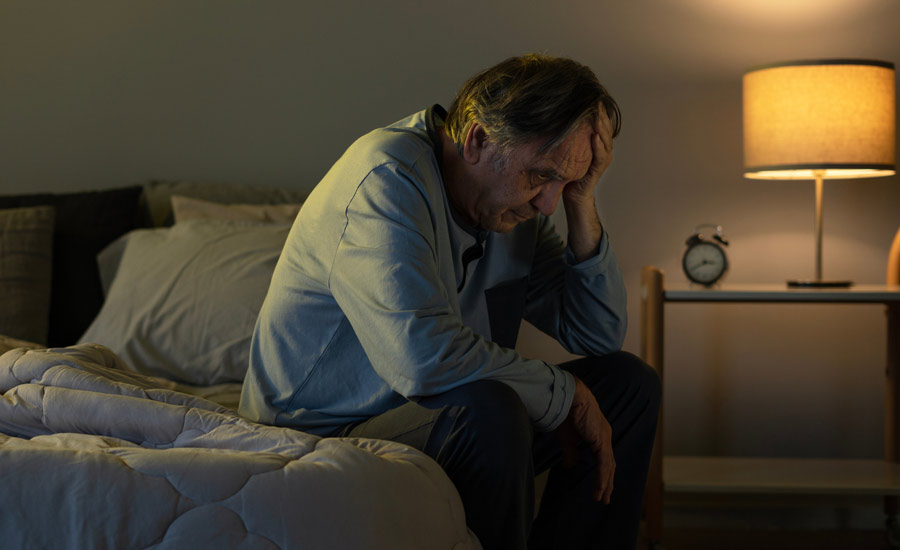Sundowning in Dementia – Practical Ways Care Homes Settle Residents At Night

Some residents with dementia become more unsettled in the late afternoon or evening. They might seem confused, restless or anxious in a way that wasn’t present earlier in the day. This pattern is often referred to as sundowning.
This article explores triggers of Sundowning, how staff recognise the early signs and the steps care homes take to help residents settle safely at night.
Why Does Sundowning Happen and How is it Managed in Care Homes?
Why it happens?
Sundowning is thought to be linked to changes in the internal body clock, tiredness, reduced daylight and difficulty processing stimulation at the end of the day. These factors combine to cause confusion, restlessness or anxiety in some residents with dementia.
How care homes manage it
Staff respond by maintaining a calm, steady and familiar evening routine. Lighting is softened, noise is reduced and care is personalised to what each resident finds comforting. Early signs of distress are quickly identified and support is adjusted to help residents feel safe and settled.
What Might Trigger Sundowning in the First Place
Sundowning doesn’t have a single cause, and not every resident with dementia will experience it. However, for those who do, certain patterns tend to emerge.
One common factor is fatigue. By late afternoon, a resident may be tired, mentally or physically, or both, especially if the day has been full or unpredictable. That tiredness can make it harder to cope with changes or stay calm.
As daylight fades, shadows might start to appear in a room, making it harder for someone with dementia to process what they’re seeing. The space may feel unfamiliar or confusing, even if nothing has actually changed.
Other triggers might include discomfort, hunger, background noise or overstimulation, anything that adds pressure when the person is already feeling unsure. Sometimes, the routine itself may have shifted slightly without anyone realising and that small change can throw things off balance.
What Care Staff Notice First
More often than not, Sundowning happens gradually. Staff might notice a resident pacing more than usual, becoming more withdrawn or asking the same question over and over. It’s these small changes in body language, tone of voice or facial expression that suggest the resident is starting to feel unsettled.
Some residents with dementia become more sensitive to noise or movement around them and stop engaging in the usual evening routine or seem unsure of where they are. These aren’t always dramatic changes, but for an experienced and properly trained care team, they’re early signals that the resident needs extra support.
Recognising these moments early matters, allowing carers to step in gently, offer reassurance and adjust the environment before the distress builds and becomes out of control.
How the Evening Is Structured to Reduce Stress
The way care is paced and delivered during this time helps reduce stress and make things feel a little more manageable:
A slower pace
Staff will gradually wind things down, giving residents time to go from daytime activities into a calmer routine. This transition will be kept as simple and won’t be forced.
Soft lighting and less noise
Lighting is adjusted to reduce shadows and glare. Background noise is kept to a minimum, with TVs turned down, music chosen carefully and chatter in communal areas kept quieter.
Fewer demands
The evening isn’t the time for new tasks or complex choices, so staff give residents space to relax, with simple prompts rather than set instructions.
Predictable routines
Dinner is served at the same time, so residents know what to expect next, creating a sense of control and reducing the risk of anxiety caused by uncertainty.
Familiar surroundings
Rooms are kept consistent with carers avoiding moving furniture or changing the setup of a space in the evening unless it is absolutely necessary. That stability really reduces confusion.
Presence over pressure
More than anything, residents are always met with patience. Whether it’s sitting beside the resident, listening without correcting or being nearby, staff focus on making the end of the day feel as safe and comforting as possible.
Evenings Done Well in Dementia Care
Sundowning can be unsettling, but with the right support in place, it doesn’t have to lead to distress. What matters most is noticing the early signs, keeping routines calm and familiar and responding in a way that puts the resident at ease.
Ready to explore...
